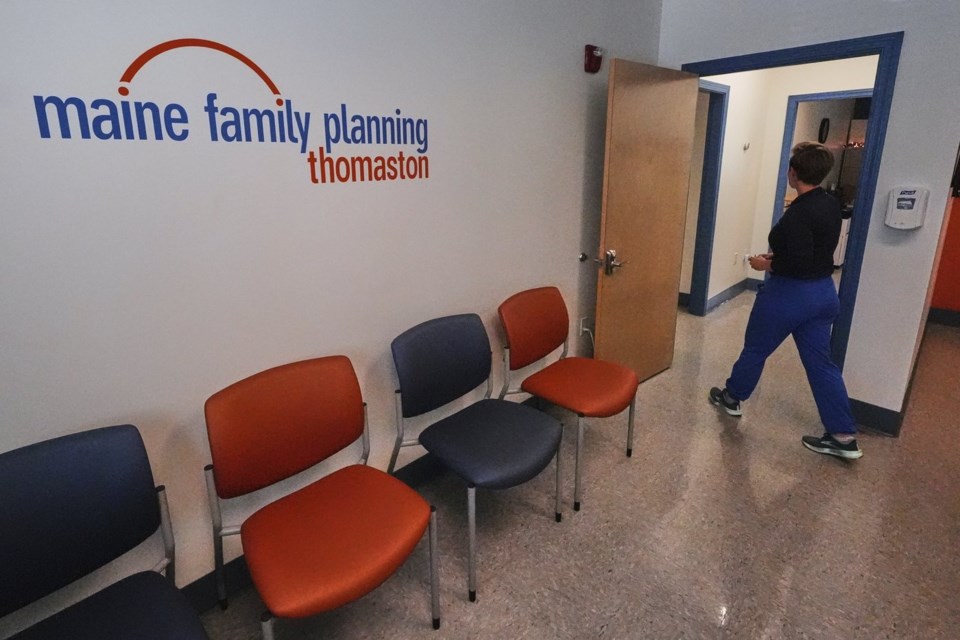PORTLAND, Maine (AP) — A network of clinics in Maine will not resume getting Medicaid funds to treat thousands of low-income patients during its lawsuit over Trump administration cuts to abortion providers, a judge ruled Monday.
The decision came despite a ruling last month by another federal judge, who said Planned Parenthood clinics around the country must continue to be reimbursed for Medicaid funding as the provider wrangles with the Trump administration over efforts to defund it. That legal fight continues.
President Donald Trump’s policy and tax bill, known as the “ big beautiful bill,” blocked Medicaid money from flowing to Planned Parenthood, the nation’s largest abortion provider. The parameters in the bill also stopped funding from reaching Maine Family Planning, a much smaller provider that offers health care services in one of the poorest and most rural states in the Northeast.
Maine Family Planning says Medicaid dollars are not used for its abortion services, which are a relatively small percentage of the overall services provided. It’s unfair to cut off funding for the clinics “solely because Congress wanted to defund Planned Parenthood,” an attorney for Maine Family Planning told the judge earlier this month.
But in his ruling Monday, Judge Lance Walker said the payments will not resume during the ongoing lawsuit by the provider seeking to restore the funds.
He wrote that Congress can “withhold federal funds and otherwise disassociate from conduct that is not enshrined as a constitutional right, including through incremental measures, and notwithstanding resulting harm to some beneficiaries of its broader Medicaid programming.”
Walker, a 2018 Trump appointee, also wrote that it would be “a special kind of judicial hubris” to undermine the Big Beautiful Bill, which he described as produced by democratic processes.
Attorneys representing the Trump administration did not immediately comment. Emily Hall, an attorney for the U.S. Department of Justice, told the judge in court earlier this month that Congress has a right not to contract with abortion providers.
“The rational basis is not simply to reduce the number of abortions, it’s to ensure the federal government is not paying out money to organizations that provide abortions,” Hall said.
Lawyers and representatives for Maine Family Planning say its 18 clinics provide vital services across the state, including cervical cancer screenings, contraception and primary care to low-income residents.
The loss of funding is “nothing short of catastrophic,” said Meetra Mehdizadeh, an attorney for the Center for Reproductive Rights, in court earlier this month.
The network previously said without Medicaid, it would have to stop providing primary care for its patients by the end of October. It said about 8,000 patients receive family planning and primary care from the network.
While advocates of cutting Medicaid for abortion providers focused on Planned Parenthood, the bill did not mention it by name. Instead, it cut off reimbursements for organizations that are primarily engaged in family planning services — which generally include things such as contraception, abortion and pregnancy tests — and received more than $800,000 from Medicaid in 2023.
The U.S. Senate’s parliamentarian rejected a 2017 effort to defund Planned Parenthood because it was written to exclude all other providers by barring payments only to groups that received more than $350 million a year in Medicaid funds. Maine Family Planning asserts in its legal challenge that the threshold was lowered to $800,000 this time around to make sure Planned Parenthood would not be the only entity affected.
It is the only other organization that has come forward publicly to say its funding is at risk.
Patrick Whittle, The Associated Press



